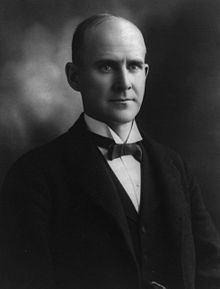I do not! And thank you for the well-articulated perspective and question.
However, one thing I do believe is that the more we are discovering through scientific approaches, the more we may be seeing that they actually validate, not invalidate, some of those “common central themes” I spoke of. Nothing in modern science has, for example, invalidated nondualistic Vedanta or Buddhism, and I would argue very much reinforce the ideas of those belief systems. There are plenty of books on the subject out there, but I think my personal current favorite is:
Another few points:
Tesla thought nondualistic Vedanta might explain things in a fundamental way.
Schrödinger thought nondualistic Vedanta might explain things in a fundamental way.
Oppenheimer thought nondualistic Vedanta might explain things in a fundamental way.
Einstein was not an atheist. Darwin was not an atheist. Many great scientific minds were not atheists – and this can’t just be explained away as “well they grew up with it.” No, the reality is, these spiritual notions were an important part of their lives and thinking, nor did these great thinkers believe there had to be inherent contradictions between science and spirituality/religion/metaphysics.
IMHO the brightest minds in theoretical physics, metaphysics, and consciousness studies all seem quite open to thinking that reality is nondualistic and potentially panpsychist in nature.
Up until discovering our “universe” had a “beginning,” this possibility was among the least expected by scientific minds at the time, because it seemed so very, well, “religious” in nature (or I would say, sounded similar to other ideas that had arisen in spiritual belief systems, but not contemporary physics).
I’ll also remind folks that about 95% of the energy and matter in the universe that we can even detect is essentially utterly unknown. We call it Dark Energy and Dark Matter, but it really amounts to the 95% of stuff in all creation that we know exists, but know nothing about. And those are the known-unknowns, and doesn’t even include the unknown-unknowns (to use a Rumsfeldian ontology, probbly the only thing of value he contributed IMHO).
Here’s how I’d summarize my own feelings: That fundamental, nearly universal notion of nondual reality that is at the core of almost every human belief system, is a non-scientific way (in our contemporary terms) of coming to understand the absolute truth in relation to all that is. I personally believe this truth is available to all of us, personally, and these personal experiences are what is at the root of many religions – including ones that get highly distorted over time, or even contemporaneously with their founding.
Science is the set of tools we have that allows us to attack truth from the other perspective – all of the specifics of our relative reality, that allow us to work our way “back” to the core truth.
I do believe that not only can we attack truth from both directions, but to come closer to knowing it, we must.
I don’t know if you’ve ever read any Vedanta (especially Advaita) texts, Buddhist texts, read much about shamanic belief systems and indigenous cultures – I will simply remind that these too count as “religions” in the way being discussed in this thread, and they are quite different than the two Christian belief systems you referenced – which are quite different from one another, as you noted.
I swear I’m not trying to be an asshole when I say this:
Most religions that have been practiced by humans were not invented by white people. They were not invented since the birth of Christianity. Vedanta is at least 4500 years old, and I think is probably much more like 6000-10,000 years old (probably as an oral tradition predominantly). For us to label religions as “bad” and then repeatedly refer to white Judeo-Christian belief systems exclusively? Again, not to be an ass, but I really do believe that this “cancels” most of the belief systems that brown people came up with thousands of years earlier – and are still practiced by many. Many of them are quite different at their core than what many Westerners think of as religions, and in fact they are much more similar to what Jesus actually preached than the practices of the church that arose in his name hundreds of years after his death. They are worth study IMHO.
